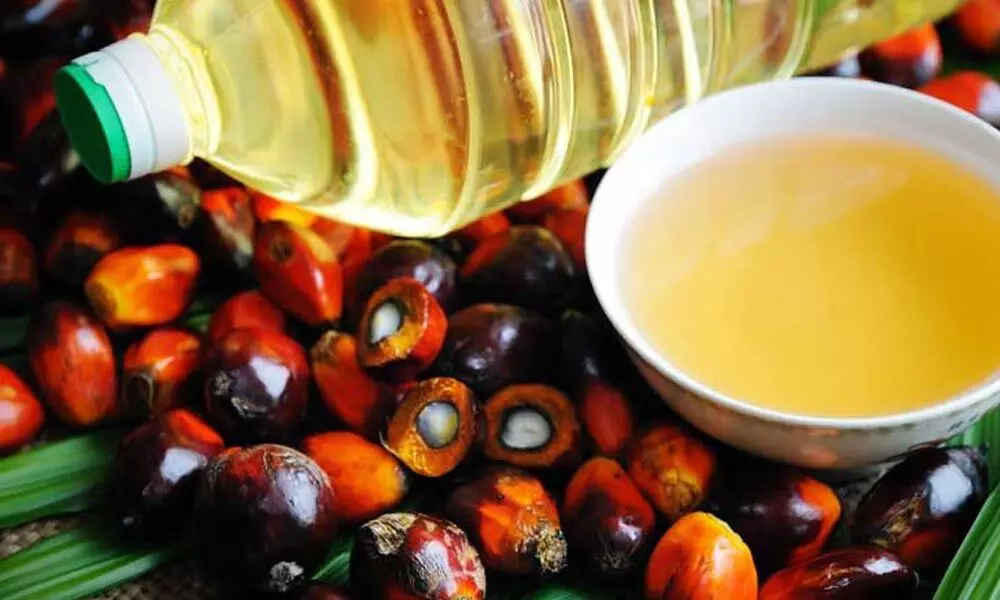The benefits of adding palm oil to your diet
Palm oil especially as part of an overall low-fat diet effectively maintain total cholesterol and lipoprotein cholesterol values
image for illustrative purpose

The world was already on the fast track to digitization when the global pandemic struck in late 2019. What were once options to connect with remote teams and colleagues across the globe became a form of day to day working even if your co-worker lived across the street. And the home transformed itself into the new workplace, connected by video calling and a host of other digital platforms. For those who were dependent on the office cafeteria or the deli across the office, new challenges emerged to ensure their meals weren't affected with the shift in work location to home. And so, just as home became the new workplace, the home kitchen also assumed greater significance as people turned back towards home cooking. As the global pandemic gives us a chance to pause and assess our dietary and lifestyle choices, it's essential to look at healthier alternatives for the way forward.
This shift from dependence on dining or take out towards home cooked meals provides many benefits that could alter the long term well-being of consumers. Recent surveys also point towards as many as 7 out of 10 consumers saying that they will continue cooking, thereby providing an opportunity to take control over dietary choices and bring in healthier alternatives. One such healthy alternative is Palm oil, which is one of the most versatile oils used for cooking. Palm oil especially as part of an overall low-fat diet has been shown to effectively maintain total cholesterol and lipoprotein cholesterol values. There is evidence that a diet containing palm oil can actually reduce cholesterol levels: in a 2015 clinical trial published in the journal Food and Function, both palm oil and olive oil reduced cholesterol by 15 per cent. Palm oil contains monounsaturated fats which are proven to be beneficial for health and is free from cholesterol and trans-fat which are considered unhealthy and detrimental to the body.
Dining out has proven to have both a direct and an indirect cost to the consumer. Estimates have shown that an average Indian household spends an average of Rs2,500 per month, while dining out as a direct expenditure with some cities as high as Rs3,500 per month. However, what one also needs to calculate is the effect on one's health as there is no control over the type of ingredients used, in particular the oils used for cooking. Palm oil contains monounsaturated and polyunsaturated fats, which are known to be beneficial to health. In comparison, most vegetable oil such as soybean and sunflower are liquid at room temperature; so, in order to be useful in many food products it has to go through an industrial process to turn it into a semi-solid. That process, known as hydrogenation, creates trans-fats which are known to be linked to cardiovascular disease. Consumption of trans-fats has negative health effects, including increasing plasma lipid levels.
As a result, countries around the world have moved to ban or restrict trans-fats in foods as they cause inflammation and calcification of arterial cells: known risk factors for coronary heart disease (CHD). They inhibit cyclo-oxygenase, an enzyme required for the conversion of arachidonic acid to prostacyclin, which is necessary for the regulation of blood flow. According to The American Journal of Clinical Nutrition, replacing trans-fats with palm oil reduces heart disease risk markers and improves blood lipids. Palm oil is also high in tocotrienols, a type of vitamin E with antioxidant properties can slow the progression of dementia and lower stroke risk. Healthy diets are important to support the natural immune system within the body.
As we approach the completion of two year of this global pandemic and embrace measures such as sanitization and social distancing as a way of life, it's a good time to pause and reflect on what measures we can implement in our diets to ensure we stay healthy and avoid becoming immunocompromised.

